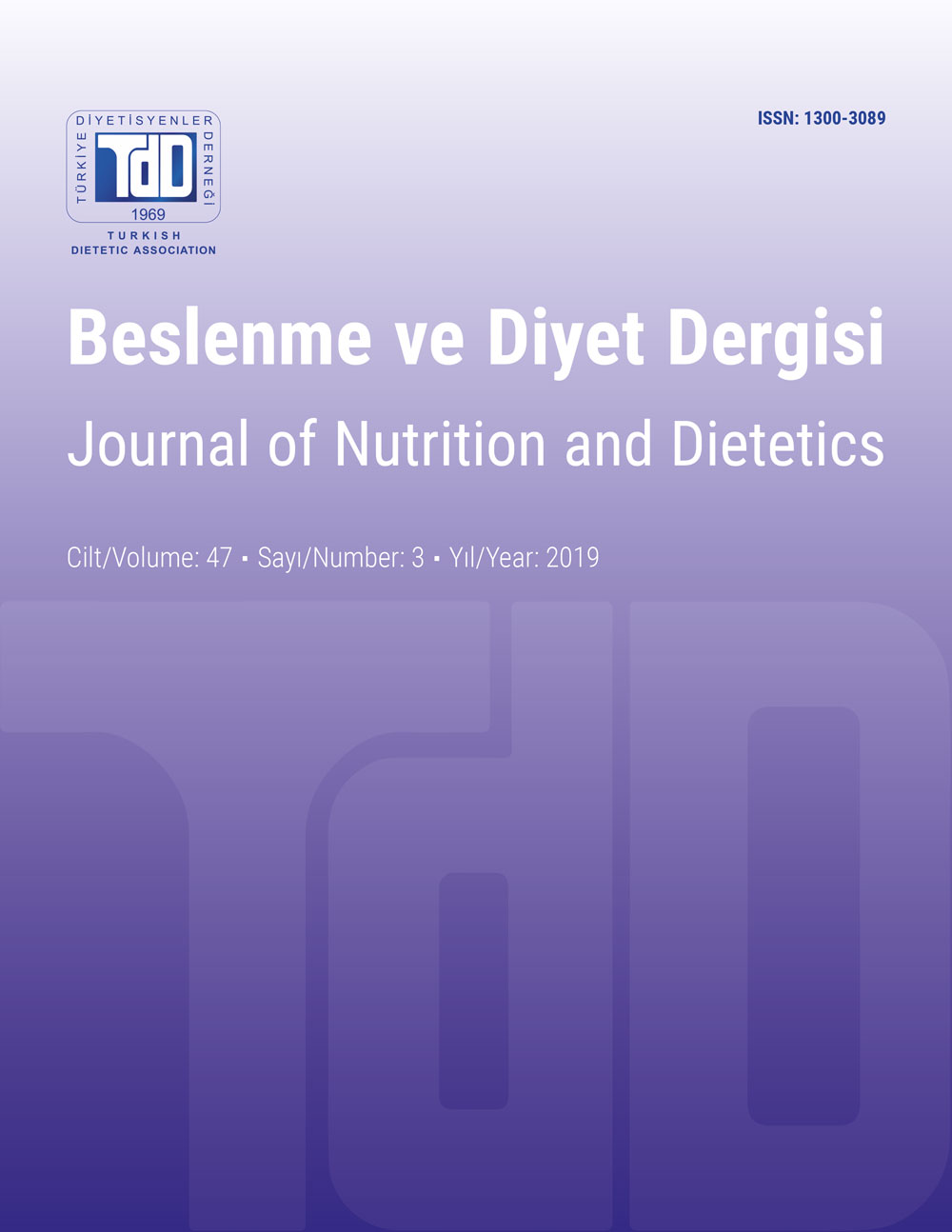The Effect of Adherence to DASH Diet on Blood Pressure, Anthropometric Measurements and Dietary Intakes in Elderly Hypertension Patients
DOI:
https://doi.org/10.33076/2019.BDD.1160Keywords:
Hypertension, DASH diet, nutrients, anthropometric measurementsAbstract
Aim: The aim of this study was to evaluate the effects of adherence to Dietary Approaches to Stop Hypertension (DASH) diet on blood pressure, anthropometric measurements and dietary intakes of elderly hypertension patients, who were admitted to a public health centre in Turkish Republic of Northern Cyprus.
Subjects and Method: Study was held on 133 hypertensive patients over 60 years of age (18% men). Height, body weight, waist circumference, systolic blood pressure (SBP) and diastolic blood pressure (DBP) were measured. Dietary intakes were determined by using 24-hour dietary recall. Adherence to DASH diet was evaluated as follows: “<4 points: low adherence” and “≥4 points: high adherence”.
Results: Mean DASH score was 3.1±0.8, and 19.5% of subjects were classified as high adherent to DASH diet. No significant difference was found between SBP and DBP values of patients with a low or high adherence to DASH diet (p>0.05). Both body mass index (BMI) and waist to height ratio, as one of the main cardiovascular risk factors, were found similar between groups (p>0.05). The group with high adherence had significantly higher vegetable and dairy consumption and lower sugar consumption as compared to low adherence group, while the fruit consumption was only significantly higher in women (p<0.05). It was found that men with high adherence had statistically significant higher intakes of fiber, vitamin B2, folic acid, potassium, magnesium and zinc, while women had statistically significant higher intakes of vitamin B2, folic acid, vitamin C, potassium, magnesium, calcium and phosphorus. Both men and women had lower consumption of sodium in high adherence group than low adherent subjects (p<0.05).
Conclusion: It was found that high adherence to DASH diet had no effect on blood pressure, however an increase in body weight was associated with an increase in DBP level. The general tendency of a low adherence to DASH diet in this population may have a role in the lack of positive effects.

